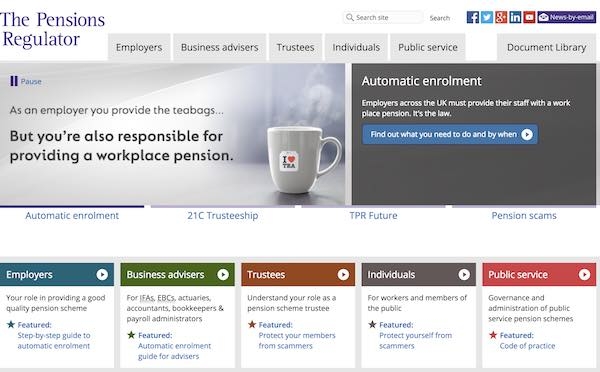The Pensions Regulator (TPR) has hailed what it called a “clearer, quicker and tougher approach” for encouraging more trustees to “do the right thing” sooner.
TPR’s latest Compliance and Enforcement quarterly bulletin showed how discussions and interventions from case teams had led to trustees tightening up their procedures, to the benefit of their members.
The more proactive approach led to 91% of defined contribution (DC) schemes submitting their scheme returns on time in 2017 – an increase from 81% a year earlier.
Overall, more than 99% of the total membership of DC schemes is in schemes that submitted returns on time.
The compliance section of the bulletin also revealed that the decision to move to swifter enforcement action against trustees that submit late recovery plans – and make them aware of the penalties they could receive – had led to a cut in the delay.
TPR says it “actively pursues late scheme returns and fines trustees who fail to submit this information to us.”
Nicola Parish, TPR’s executive director of frontline regulation, said: “This report shows how our clearer, quicker and tougher approach is having a positive impact.
“We’re engaging earlier with schemes and trustees to get them to do the right thing, on time, to give the greatest benefit to members.
“We’re being clearer with trustees about what they have to do, and moving quickly to take action if they don’t do it.
“Failing to meet these basic legal duties is unacceptable and while it’s encouraging that more trustees are doing the right thing, a minority of trustees still have to be prodded into action.
“The message is clear: if we tell you to do something, do it before we fine you.”
The bulletin’s section on automatic enrolment included a case study of a major employer that had failed to pay more than £700,000 of pension contributions after miscalculating the amounts that were due for more than a year.
The employer blamed the error on staff being very busy when it alerted TPR and said that it would be willing to pay the roughly £350,000 shortfall of employer contributions, as well as an additional amount to compensate for the loss of potential investment gains.
However TPR did not accept either the explanation or the proposal and ordered the employer to pay the full £700,000 of employer and employee contributions.

